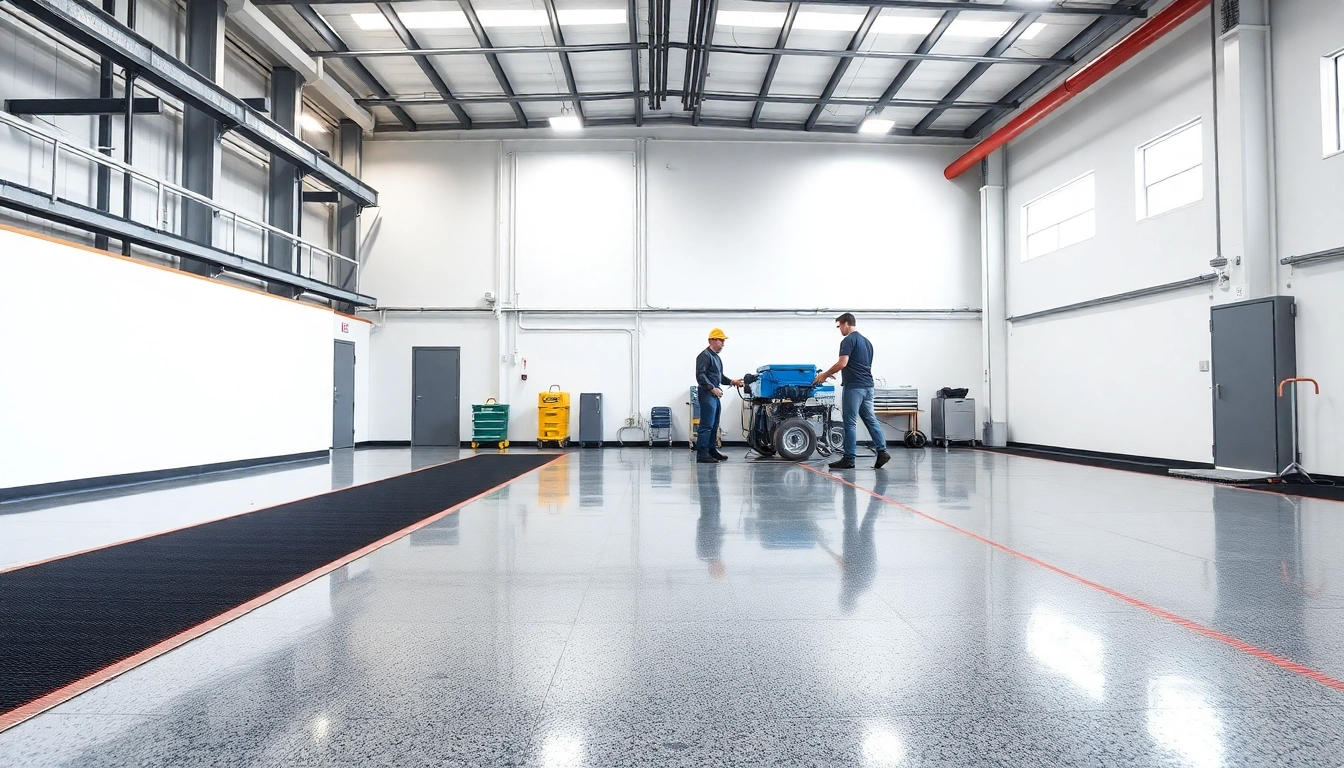Understanding Epoxy Resin Flooring: Benefits and Applications
Epoxy resin flooring has become one of the most versatile and durable surface solutions for both commercial and residential properties. Its ability to withstand heavy traffic, resist stains, and offer customizable aesthetics makes it a popular choice among property owners in Birmingham and beyond. If you’re considering upgrading your floors, understanding what epoxy resin flooring entails and how it can benefit your space is essential. For those seeking expert installation, Epoxy resin flooring contractors Birmingham can provide tailored solutions that meet your specific needs.
Selecting the Right Epoxy Resin Flooring Contractor in Birmingham
Criteria for evaluating professional epoxy flooring services
Choosing a qualified contractor is paramount for ensuring a high-quality, long-lasting epoxy floor. Key criteria include the contractor’s experience, portfolio of completed projects, industry certifications, and customer reviews. Experienced contractors are more proficient in surface preparation, proper mixing ratios, and curing techniques, all of which influence the final finish. Certifications from reputable organizations, such as the Resin flooring Association or manufacturer-approved installers, serve as indicators of professionalism.
Questions to ask before hiring a contractor
- Can you provide references from previous clients in Birmingham?
- What brands and types of epoxy products do you use?
- What is your estimated timeline from preparation to completion?
- Do you offer warranties or guarantees on your work?
- How do you handle surface preparation and moisture mitigation?
Asking targeted questions helps assess their expertise, transparency, and professionalism, reducing the risk of subpar workmanship.
Checking credentials and past project reviews
Always verify credentials through industry associations or licensing boards. Additionally, review online testimonials and project galleries to evaluate their craftsmanship and reliability. Platforms like Google Reviews or Yelp often provide honest feedback from local clients and can reveal consistent strengths or weaknesses.
Design Trends and Customization Options for Epoxy Floors
Color schemes, textures, and finishes
Epoxy floors in Birmingham now feature a broad spectrum of design options. From bold, vibrant hues to subtle neutral tones, customization allows property owners to match their branding or aesthetic preferences. Textures like matte, gloss, or metallic finishes add depth and character. Decorative chips or flakes can be embedded for a speckled appearance, offering both style and slip resistance.
Incorporating branding and aesthetic elements
Commercial spaces often incorporate logos, patterns, or color schemes into their epoxy floors to reinforce brand identity. Custom visual designs can be achieved through stenciling, embedding graphics, or using color-blocking techniques, making the flooring an effective branding tool while providing the durability required for high-traffic environments.
Innovative features like anti-slip and UV resistant coatings
Advancements in epoxy formulations now include anti-slip additives, vital for safety in warehouses, gyms, and outdoor areas. UV-resistant coatings prevent yellowing or degradation from sunlight, ideal for outdoor patios or sun-exposed interiors. These features extend the lifespan and safety of epoxy floors, making them suitable for various demanding applications.
Installation Process and Timeline for Epoxy Resin Floors in Birmingham
Preparation, application, and curing phases explained
The installation process begins with meticulous surface preparation—cleaning, grinding, and repairing to ensure a smooth, contaminant-free substrate. Applying a primer facilitates adhesion, followed by the epoxy coating, which is typically poured or rolled onto the surface. The curing process varies depending on the product but generally spans 24 to 72 hours. Proper curing is critical to achieving optimal strength and finish quality.
Expected project duration and scheduling tips
Typically, a standard epoxy flooring project in Birmingham takes 2-4 days, accounting for preparation, multiple coating layers, and curing times. It’s advisable to schedule installations during periods of low operational activity, particularly for commercial spaces, to minimize disruption. Proper planning with your contractor ensures efficient project flow and satisfactory results.
Post-installation maintenance and care tips
Once cured, epoxy floors require minimal maintenance. Routine sweeping and damp mopping keep the surface clean. Avoid harsh chemicals or abrasive scrubbers that could damage the finish. Applying a designated epoxy floor wax or sealant periodically can enhance gloss and durability. Addressing spills promptly prevents staining, especially in commercial environments.
Performance Metrics and Cost Considerations for Epoxy Flooring
How to assess quality and durability of coatings
High-quality epoxy should exhibit excellent adhesion, hardness, and chemical resistance. Tests like pull-off adhesion, hardness scales, and chemical spill simulations can gauge durability. Reputable contractors provide warranties and technical data sheets as evidence of product quality and performance standards.
Pricing structure overview and value comparison
Epoxy flooring costs vary depending on size, complexity, and customization options. Basic installations range from £30 to £70 per square meter, while high-end finishes or embedded designs may exceed this range. While initial investment might seem significant, the long-lasting nature of epoxy reduces maintenance and replacement costs, offering excellent value over time.
Long-term cost savings and warranty options
Durable epoxy floors can last 10-20 years when properly maintained, significantly cutting down on repair and replacement expenses. Many professional contractors offer warranties of 5-10 years, providing peace of mind and assurance of their craftsmanship. Selecting quality materials and skilled installers is key to maximizing the return on investment.



